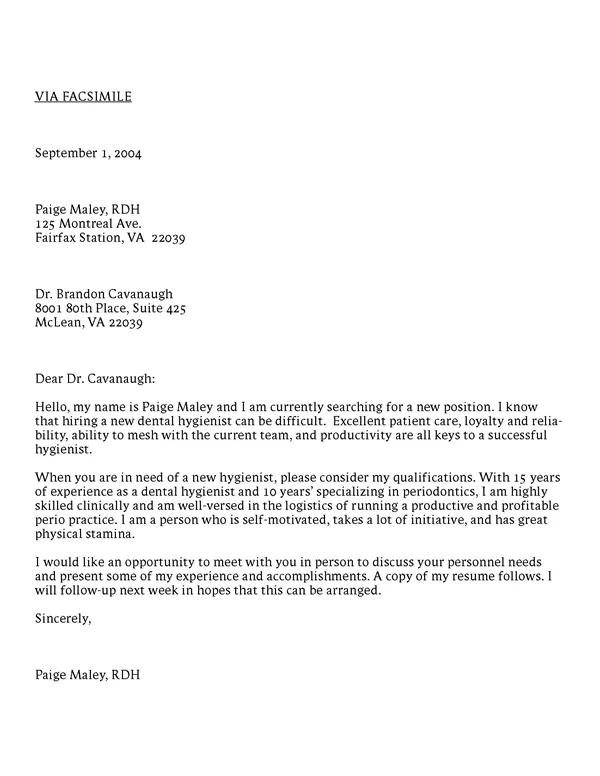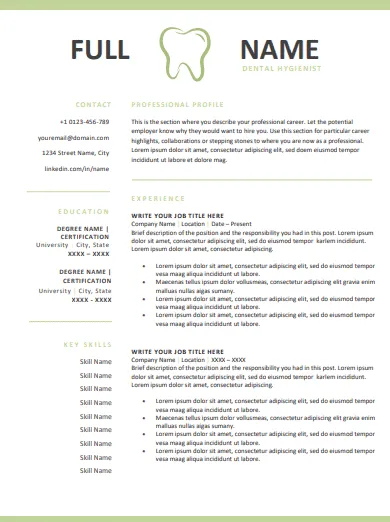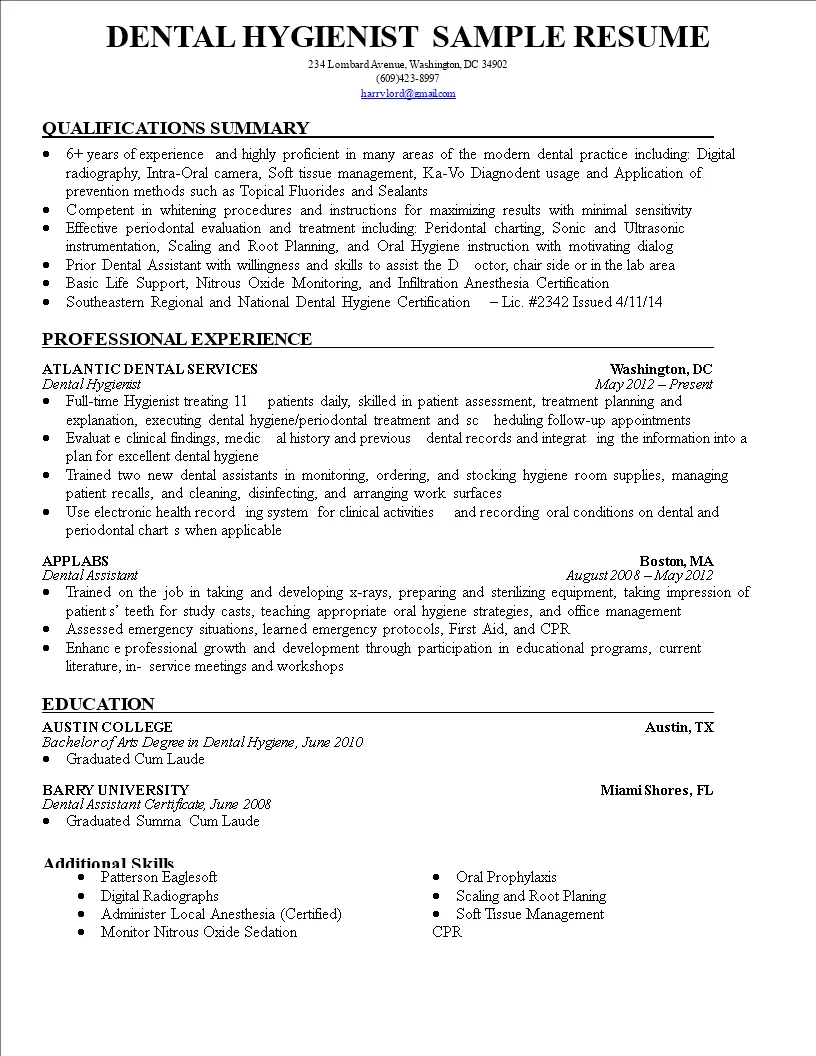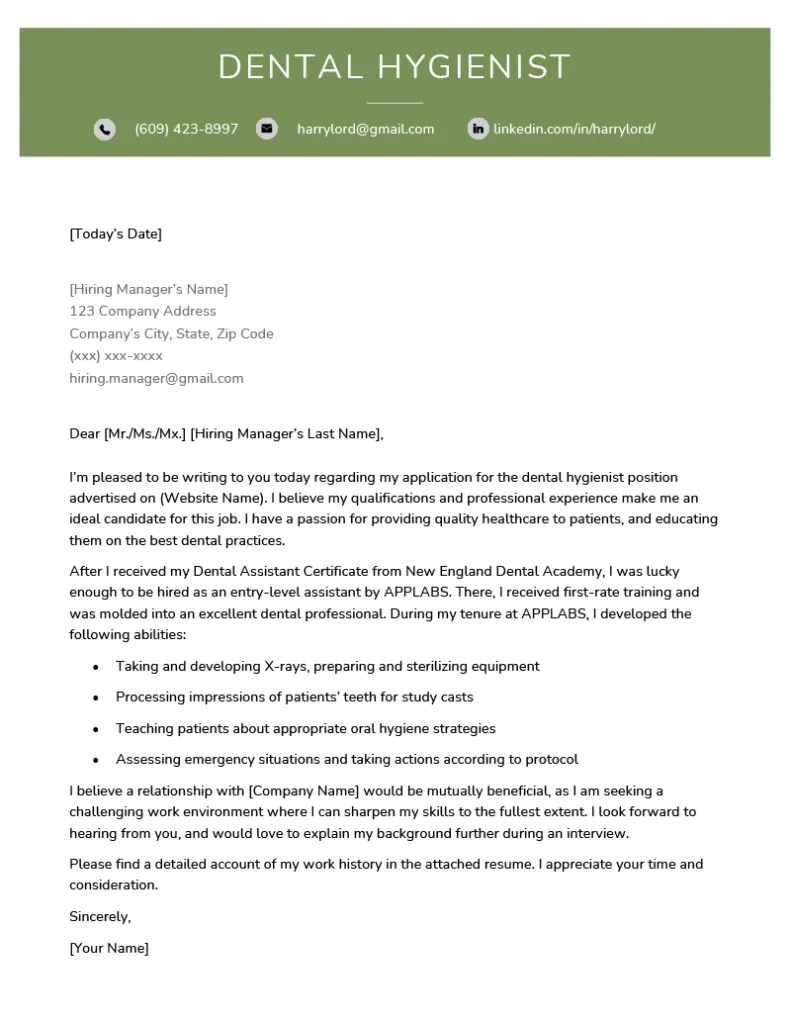Highlight Your Dental Hygiene Skills
A dental hygiene cover letter is your first impression on a potential employer, offering a chance to showcase your skills and experience beyond your resume. This is the perfect opportunity to highlight your unique abilities and explain why you’re the ideal candidate for the position. Focus on the skills that make you an exceptional dental hygienist, not just listing them, but also explaining how you apply them in a practical setting. This section is where you demonstrate your value and differentiate yourself from other applicants. Think about skills that align with the job description. For instance, if the job description emphasizes patient education, be sure to highlight your experience in explaining oral hygiene techniques to patients and motivating them to improve their habits. Similarly, if the position requires experience with digital radiography, ensure that your cover letter reflects your proficiency in this area, providing concrete examples of your competency. The cover letter should also highlight any specialized skills, such as experience with pediatric dentistry or periodontics.
Emphasize Relevant Experience
Your cover letter should not simply reiterate your resume, but rather expand on your key experiences and demonstrate their relevance to the job you’re applying for. Select the experiences that best match the job requirements and elaborate on them. When discussing your past roles, go beyond listing your responsibilities and explain your accomplishments and how you made a positive impact. Quantify your achievements whenever possible, such as the number of patients you’ve treated or any improvements you’ve made to practice efficiency. For example, did you implement new sterilization protocols that improved patient safety and reduced costs? Or did you develop a patient education program that increased patient compliance and satisfaction? These are the kinds of details that make your experience compelling. By adding specific examples and quantifiable results, you provide the employer with tangible evidence of your capabilities and potential to succeed in the role.
Tailoring Your Letter to the Job

A generic cover letter is easily spotted and can undermine your application. Customizing your letter for each job shows that you’ve taken the time to understand the specific requirements of the position and the needs of the employer. Before you start writing, carefully review the job description and identify the key skills, qualifications, and experience that the employer is seeking. Then, tailor your letter to highlight those aspects of your background. Use the same keywords and phrases from the job description to show that you meet their specific criteria. Show your interest and demonstrate how your abilities align with the job’s needs. Additionally, research the dental practice or clinic and mention specific things that attract you to it. Showing you understand their mission, values, or patient care approach will leave a lasting impression. By personalizing your cover letter, you convey a genuine interest in the position and increase your chances of getting an interview.
Showcase Your Passion for Dental Hygiene
Your cover letter should not only detail your skills and experience but also reflect your passion for dental hygiene. Employers want to hire individuals who are enthusiastic about their profession and committed to providing excellent patient care. Share why you enjoy being a dental hygienist and what motivates you to excel in your role. Discuss what excites you about the field. This may include a specific area of dental hygiene, the opportunity to work with a diverse patient population, or the chance to contribute to a team. Your passion makes you stand out from other candidates who may have similar qualifications. This section allows you to connect with the hiring manager on a personal level, creating a positive impression that extends beyond your professional qualifications. By expressing your enthusiasm, you signal that you’re not just looking for a job but for a fulfilling career.
Demonstrating Professionalism
A well-written cover letter reflects your professionalism and attention to detail, which are essential qualities in the dental hygiene field. Your cover letter represents your ability to communicate effectively and convey your professionalism through your writing. Maintaining a professional tone is important, using proper grammar, punctuation, and spelling. Avoid using slang or casual language. Always address the hiring manager by their name if possible, which demonstrates you’ve taken the time to research the practice. When writing the letter, maintain a professional layout by using a clear and concise format, with appropriate headings, spacing, and fonts. Ensure your contact information is accurate and up-to-date. Proofread your cover letter carefully to eliminate any errors. A polished and professional cover letter shows that you take pride in your work and are committed to excellence.
Proofreading and Formatting

Accuracy in your cover letter is crucial, so carefully proofread the entire document to ensure there are no grammatical errors, typos, or formatting inconsistencies. These errors can damage your credibility and give the impression that you are careless or inattentive to detail. Use a grammar and spell-checking tool to assist you, but don’t rely on it completely; it’s best to read the letter multiple times. Check the layout to make sure your cover letter is easy to read. Ensure that your contact information is accurate, clear, and easy to find. Formatting consistency, such as using a standard font and consistent spacing, adds to the overall professionalism. Consider having a friend or colleague review your cover letter for a second opinion. Sometimes, a fresh pair of eyes can spot errors you might have missed. A well-proofread and properly formatted cover letter strengthens your application and increases your chances of getting an interview.
Key Skills to Include
A compelling cover letter should highlight a combination of technical and soft skills to showcase your well-rounded expertise as a dental hygienist. List the core technical skills such as expertise in performing dental cleanings, taking X-rays, applying fluoride treatments, and providing patient education. Make sure you mention any experience with specialized equipment or software used in modern dental practices. Also, discuss the soft skills that enable you to succeed, such as active listening, empathy, and the ability to communicate clearly with patients. These skills are essential for building strong relationships with patients and ensuring their comfort. In the skills section, you can also highlight any certifications or special training you’ve completed, such as local anesthesia or nitrous oxide certification. By highlighting these specific skills, you provide employers with a complete picture of your capabilities and increase your chances of being considered for the role.
Communication and Interpersonal Abilities
In dental hygiene, communication and interpersonal skills are as important as technical proficiency. Emphasize your ability to communicate with patients effectively and your ability to build rapport and trust. Describe your approach to explaining complex dental concepts in a way that patients understand, and explain your methods for answering questions and alleviating anxieties. Highlight your active listening skills. Discuss how you can empathize with patients and make them feel comfortable during their appointments. Share any experience you have in handling difficult patient interactions or resolving conflicts. Also mention your ability to work in a team and collaborate with dentists, dental assistants, and other staff members. By showcasing your communication and interpersonal skills, you demonstrate that you can contribute to a positive and supportive work environment and provide excellent patient care.
Technical Skills and Certifications

When writing a cover letter, make sure to specify your technical skills and any certifications or specialized training you have. Mention your proficiency in all the standard dental hygiene procedures, such as scaling and root planing, polishing, and periodontal charting. Indicate your experience with digital radiography and the use of any specific dental software or technology. Highlight any certifications or specializations you have, such as local anesthesia administration, nitrous oxide monitoring, or experience with specific dental equipment. Include any continuing education courses you have completed and any achievements or awards you have received. By specifically listing these technical skills and certifications, you can show your expertise and qualifications and emphasize your ability to perform the required tasks. This helps demonstrate your value and competence in the field of dental hygiene.
Closing Your Cover Letter
The closing of your cover letter provides one last opportunity to make a positive impression on the hiring manager. Express your enthusiasm for the position and reiterate your interest in the opportunity. Thank the employer for their time and consideration. Clearly state your availability for an interview and provide your contact information. You can include a call to action to encourage the employer to contact you. Be sure to keep the closing concise and professional. Avoid using clichés or overly formal language. A strong closing reinforces your interest in the position and makes it easier for the employer to take the next step in the hiring process. A well-crafted closing statement demonstrates your professionalism and leaves a lasting positive impression, potentially leading to a job interview.
Expressing Enthusiasm and Availability
The final paragraph of your cover letter should express your enthusiasm for the position and your availability for an interview. Reiterate your strong interest in the role, referencing the skills and qualifications you highlighted earlier in the letter. State that you are eager to discuss your experience and how you can contribute to the dental practice. Clearly state your availability for an interview, including the best way to reach you. You can mention that you are available by phone or email and indicate that you are flexible with scheduling. By expressing your enthusiasm and specifying your availability, you provide the employer with a clear call to action. This makes it easier for the hiring manager to contact you and move forward with the hiring process. A proactive and enthusiastic closing can significantly increase your chances of securing an interview.
